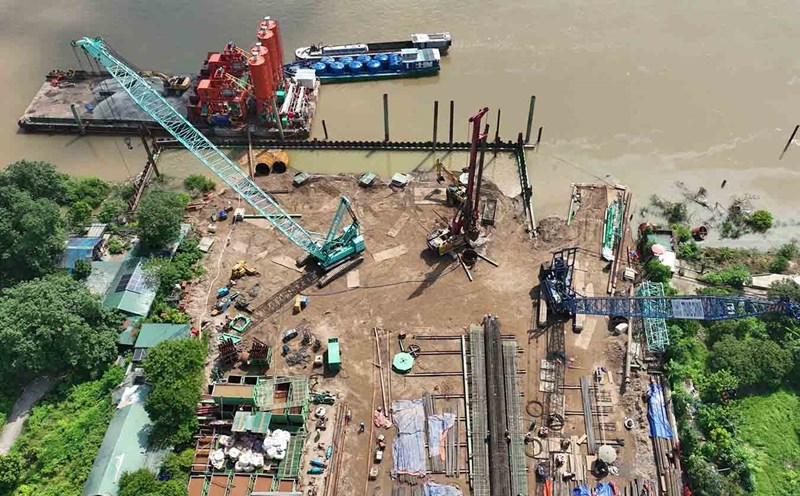On September 12, Deputy Prime Minister Nguyen Chi Dung chaired a meeting with ministries and branches on developing a State Economic Development Project (Project) towards improving the State's economic efficiency.
According to the report at the meeting, the operational efficiency of many state-owned enterprises is not commensurate with the resources they are holding; international competitiveness is still limited; the pioneering role in innovation and leading a number of key and essential sectors and fields has not been clearly demonstrated.
The organizational system of public service units has not been streamlined, the mechanism of operation has been slow to be innovated, and financial autonomy is still limited. The roadmap for adjusting public service prices is not timely, and service quality has not met requirements.
Some non-budgetary State financial funds are still dispersed, overlapping, and overlapping in their goals and tasks; resource efficiency is still low...
Reporting at the meeting, Deputy Minister of Finance Ho Sy Hung said that the Ministry of Finance had sent opinions to members of the Project Development Steering Committee, members of the Prime Minister's Policy Advisory Council on the content of the draft Project and the Resolution on State economy.
As of September 10, the Ministry of Finance received comments from 15/15 ministries and agencies; 17/32 members of the Steering Committee; 7/18 members of the Prime Minister's Policy Advisory Council.
Next, the ministry coordinated with the Government Office, ministries and branches to complete the draft Resolution. In which, amend, supplement and perfect the general assessment, guiding viewpoints, goals and tasks, and solutions.
In particular, the draft Resolution details new and breakthrough solutions for each State economic sector (state-owned enterprises, State credit institutions, public service units); for financial resources (state budget, State budget-free state budget, national reserves); for asset resources (land and resources, infrastructure and headquarters).
Also at the meeting, leaders and representatives of the units gave their opinions on public service units, use of public assets, resources, finance, land classification, economic and cultural relations, the role of state-owned commercial banks, business management, etc.
Concluding the meeting, the Deputy Prime Minister noted that ministries and branches need to continue to focus highly, be responsible, unify views, conduct in-depth and valuable research to participate in the project. It is necessary to clarify the leading role of the State economy, the leadership and pioneering nature of State-owned enterprises.
In particular, solutions need to be focused, key, not overlapping. For State-owned enterprises, starting from the summary of Resolution 12, it is necessary to evaluate what has been done and what has not been done. From there, classify which content needs to be kept intact and promoted; what issues should be supplemented and edited, and at the same time assess practical impacts.
State-owned enterprises need to pioneer in digital transformation, green transformation, and sustainable development; have tools to assess the positive and inadequate aspects of divested enterprises; public service units pay attention to the issue of calculating correctly and fully; related to public assets, considering and taking into account surplus assets.
Ministries and branches will continue to study, give opinions, and send to the Ministry of Finance tomorrow (September 14) to promptly complete the draft.








